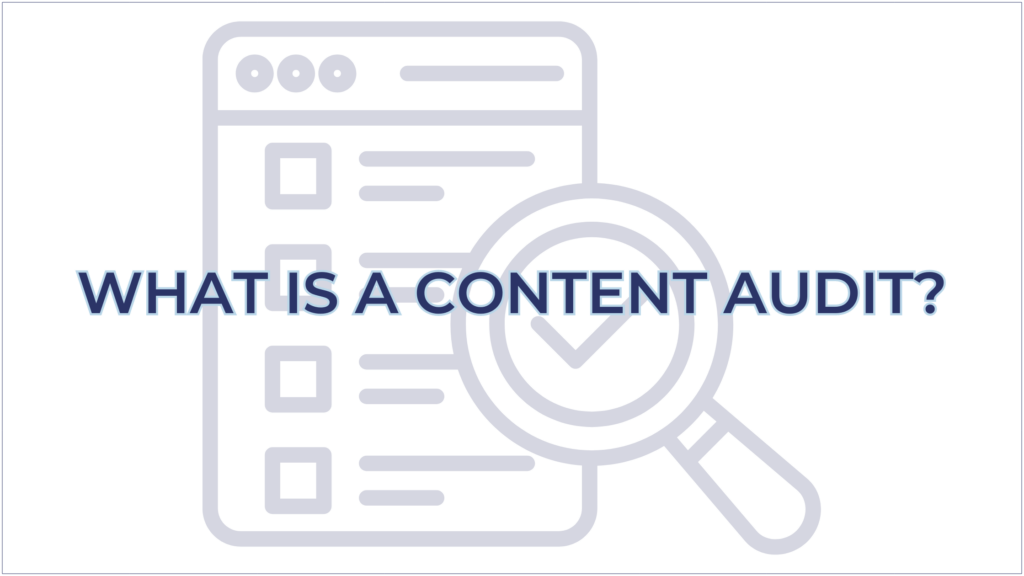
What is a Content Audit?
A Content Audit is an in-depth review of all your website or digital content. The purpose of a content audit is to assess your existing content’s effectiveness, quality and relevance, identify gaps and areas for improvement and develop a plan to optimize your content for better performance.
A content audit includes:
- Inventory: A detailed list of all your content, including blog posts, landing pages, videos, infographics etc.
- Evaluation: Analysis of the content to assess its quality, relevance, SEO performance and alignment with your current marketing goals.
- Metrics: Review of performance metrics such as traffic, engagement, conversion rates and SEO rankings.
- Content Gaps: Identifying gaps in your content that need to be filled, such as missing topics, out-of-date information, or underperforming content.
- Recommendations: Recommendations to update, repurpose or remove content and strategies for future content creation.
Content audits are essential for a healthy and effective content strategy, so all your content is working towards your business goals.
Why is a Content Audit Important?
Content audits are important for several reasons, each contributing to the overall success of your content marketing:
- Better Content Quality: A content audit helps you identify low-quality or out-of-date content that may be damaging your brand or SEO performance. By updating or removing this content, you can improve your site’s overall quality and credibility.
- SEO Optimization: During a content audit, you can identify content that’s not optimized for SEO and make the necessary changes. According to SEMrush 51% of companies that do content audits regularly see a significant improvement in their organic search rankings. Optimizing your content for SEO can increase your visibility in search engines and drive more organic traffic to your site.
- Content Gaps: A content audit helps you identify gaps in your content strategy, such as missing topics, underrepresented themes or areas where your content isn’t meeting your audience’s needs. Filling these gaps can help you create a more comprehensive content strategy that serves your audience better.
- Better User Experience: A content audit evaluates the relevance and effectiveness of your content, helping you create a more engaging and user-friendly experience for your visitors. Ensuring your content is relevant, well-organized, and easy to navigate can lead to higher engagement rates and lower bounce rates.
- Better Resource Allocation: A content audit helps you allocate your resources more effectively by identifying what’s working and what’s not. By focusing on high-performing content and improving where needed, you can maximize the ROI of your content marketing.
- Alignment to Business Goals: A content audit ensures all your content is aligned to your current business goals and marketing strategy. As your business evolves, your content needs to evolve too. Regular content audits help you stay on track and ensure your content is contributing to your broader objectives.
Working with a Content Agency on a Content Audit
Conducting a comprehensive content audit can be a time-consuming and complex process, especially for businesses with large amounts of content. A content agency can help you conduct a thorough content audit, providing detailed analysis and actionable recommendations.
Agencies bring expertise in content strategy consulting, SEO, and analytics, ensuring that your content audit is comprehensive and effective. They can also assist with implementing the recommended changes, from updating existing content to creating new content that fills identified gaps.
By partnering with a content agency, you can ensure that your content audit is not only thorough but also aligned with your overall marketing strategy, leading to more effective and efficient content marketing efforts.
